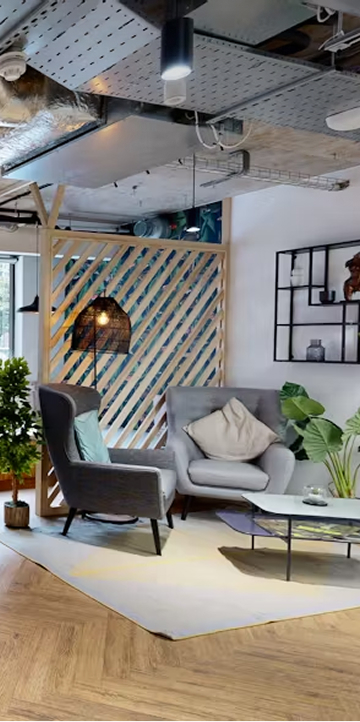3 Companies Using A Hybrid Work Model

The Covid-19 pandemic has changed a lot about how we work, with remote work on the rise and a falling demand for office space.
Even big tech companies are feeling the impact. Twitter is now subleasing 100,000 square feet of its San Francisco office.
Pinterest also paid a reported $89.5 million termination fee to pull out of purchasing office space.
Whether virtual or in-person, work is now something you do rather than somewhere you go.
More than two in five employers will have adopted a hybrid work model by 2023, a survey has found.
Another study found that 73% of businesses surveyed in the UK are considering going hybrid after the pandemic.
But what is hybrid working? How are companies currently creating a hybrid work model, and what does this mean for employees and workplaces?
What is hybrid working?

Hybrid work combines the flexibility of remote work with face-to-face work in an office space.
Companies adopting a hybrid working model encourage people to work remotely some days a week and in the office on others.
It can also involve a combination of full time on-site office workers and other employees as remote-first workers, creating a hybrid workforce. Or, it can be a combination of the two.
What are the benefits of hybrid working over remote-first or office-first models?

During the pandemic, the risk of coronavirus led to work-from-home policies.
While a remote work model was a safer, better option during much of the pandemic, the virtual approach wasn’t for everyone.
Working fully remotely can be challenging. It can lead to loneliness, poor employee engagement, an 'always-on' mentality, and challenges such as distractions at home.
However, while those at remote companies might miss the benefits of being co-located, many people also do not want to work full-time in the office either.
44% of British workers prefer a hybrid model, with a large chunk of workers saying that a 50/50 split between office and remote work would be ideal.
Hybrid working is also great for expanding the talent pool for companies. Why be limited by the geography of your potential team members?
Gallup has found that the best approach for employee engagement is a hybrid workplace model where people can work from home 3 or 4 days a week and in the office for the rest.
What do hybrid model work arrangements look like in practice?
Here are 3 businesses that are leading the way with their different hybrid approaches.
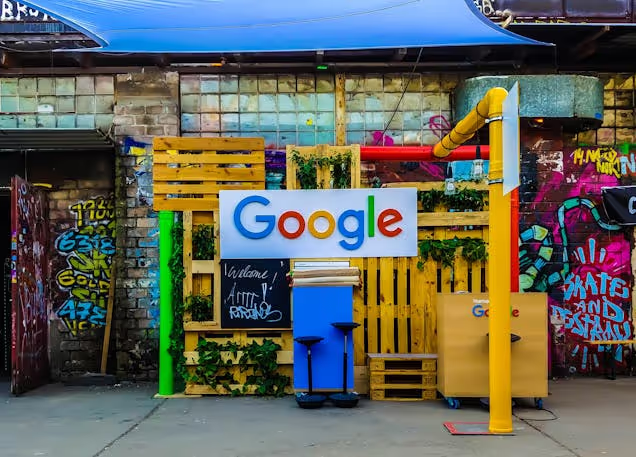
Google is known for its quirky campus-style offices.
The hybrid way of working is a popular strategy for keeping people happy at the company. The perks of hybrid working at Google include:
- Working three days in the office and two days somewhere else (a home office, coffee shops, co-working spaces) each week
- Apply to work remote-only for four weeks each year
- Apply to change locations
- Apply for full time remote work
This should lead to 'a workforce where around 60% of Googlers are coming together in the office a few days a week, and 20% working from home,' says Google CEO Sundar Pichai.
Google has also made changes to the layout of the workplace to perfect this model in practice.
Purpose-built 'Campfire' meeting spaces in their offices are circular meeting pods with seats and large screens at eye level so dialling in virtually can feel as if you’re right there in the room!
Cisco

For Cisco, the makers of conferencing tool WebEx, remote working is nothing new.
Cisco has had remote employees for over a decade. Before Covid, about half the workforce were in the office 4 or 5 days a week.
Now, less than a quarter want to be in the office 3 days a week or more.
There's no minimum number of days per week that Cisco employees have to be in the office, Cisco makes this possible through their hybrid strategy of decentralisation.
Team leaders check in regularly with remote and office staff to make sure everyone is happy with their working schedule.
They are also changing their workspace layout to be more collaborative and communal rather than tailored to individual work, making their sustainability goals much easier to achieve.
Kissflow

Software company Kissflow has taken a different approach to flexible working.
The leadership team has designed its own hybrid work model called REMOTE+, based on the feedback of employees. It involves:
- One week in the office and three weeks hybrid or remote each month
- Teams can decide how they want to work in the other three weeks and are welcome to be a fully remote workforce
- Workers are encouraged to move away from the Chennai HQ, with the company providing accommodation for the in-office week
- The company will hold monthly meet-ups and quarterly company-wide conferences to bring people together
The SaaS company which makes cloud-based services for businesses hopes that these weeks in the office, meet-ups and conferences will help promote the company culture and foster collaboration.
Hybrid working and coworking
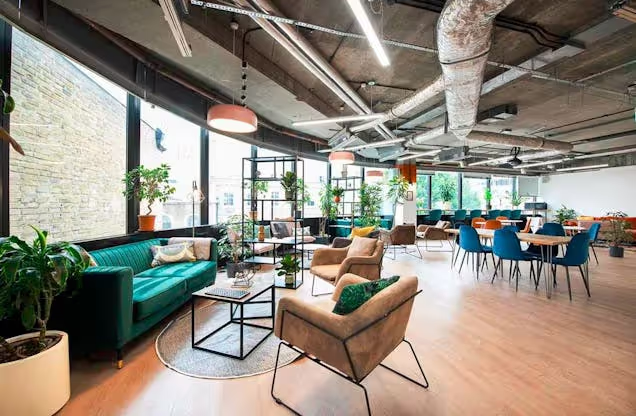
People no longer want to go to the office to work independently - they want to use their time in the office for collaboration, team-building, and socialising.
That's why co-working spaces are becoming an attractive option for hybrid employers and employees.
Co-working spaces can be a great hybrid workplace for the benefits of an office-based work model while also providing the flexibility for teams to work from home.
At Runway East, we have flexible options for hybrid teams and remote workers.
- Need an office space for a team that only works 2 or 3 days a week? We have office shares for private offices 2-3 days per week for a tasty discount
- Are you a hybrid worker or team looking for community and networking in your days out of the office? Try our rolling monthly subscriptions on desks for individuals and small teams
- Or, are you a team that wants to rent a full time space for collaborative working for team meetings? We have private, customisable offices with the flexibility of a 12 month (or less) contract
We believe that hybrid working makes it more important than ever to build networks and communities.
If you're only in the office a few days a week, those days need to be full of collaboration, meetings, and socialising.
They might well have free cake and drinks and dogs on demand too!
Hybrid work at Runway East
Want to learn more about how Runway East is helping businesses in London and Bristol make hybrid working work for them? Check out some of our case studies:
- Why software company Learn Amp loves using our flexible workspace options and networking opportunities
- How Runway East is curing Illustrate Digital employees' work-from-home blues
- Bringing a fun and social community to Venuescanner with Runway East's community culture
Book a tour of one of our locations to find out how Runway East can support your team's hybrid approach!
Got Questions? We've Got Answers
We've put together some FAQs to help you settle into life at Runway East.
find your
perfect space
Discover flexible workspace solutions across London, Bristol, Bath, Brighton, and Birmingham. From private offices to enterprise suites, find a space that grows with your team and keeps them happy every day.
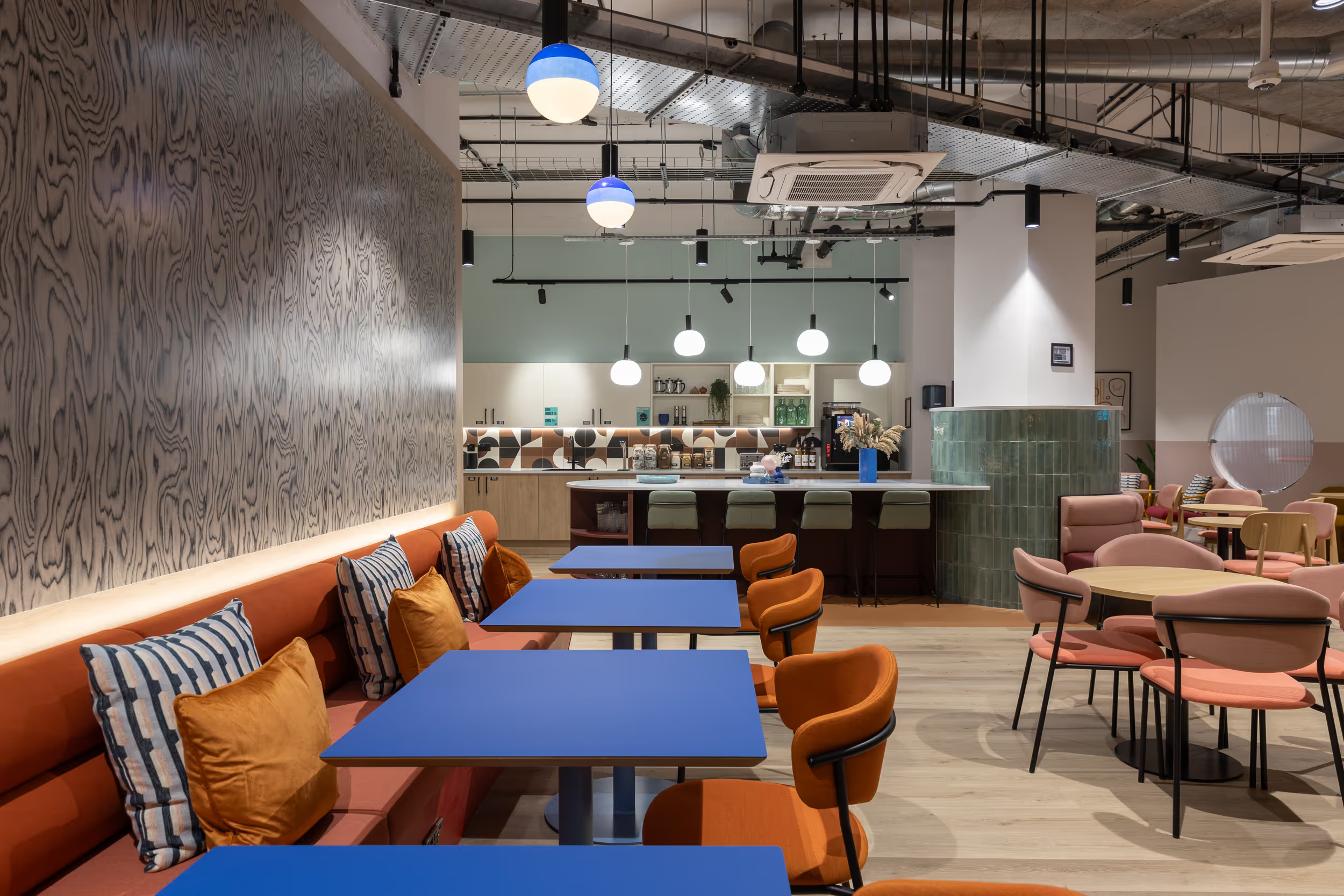


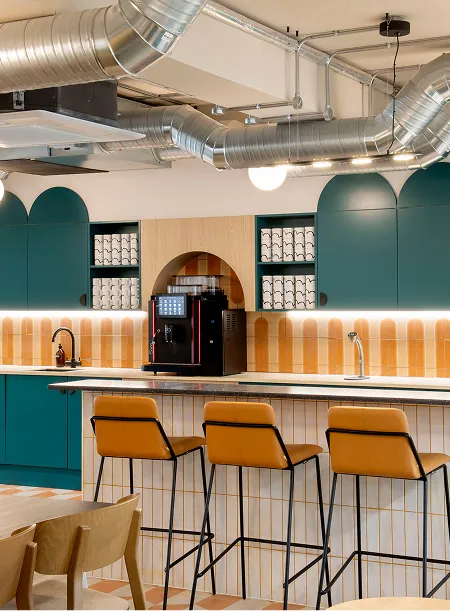
.avif)
.avif)
.avif)
.avif)

